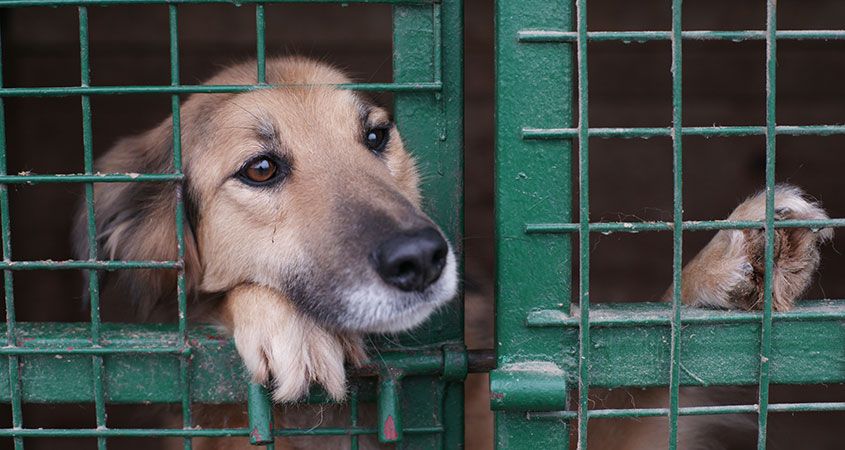
[1]
Bonding of shelter dogs fills their deep need
Attachment is claimed to be the basic organizational factor for any species’s social structure leading to group formation.
Dogs have an unfolding pattern of socialization and some sensitive periods during development that are very similar to the same phenomena recognized in the human infant…
Dogs seem to show innate responsiveness to humans that is not influenced by feeding…, and even punishment does not extinguish the proximity seeking of pups to a handler… Moreover, puppies show social attraction to humans even if they were exclusively strictly disciplined during handling…
…under certain conditions such as the loss of the attachment figure (parent or owner), both dog and child may develop similar behavior disorders ranging from psychogenic epilepsy to asthma-like conditions, ulcerative colitis, anorexia nervosa, and so on…
Bonding of shelter dogs was achieved in adults, with simple activities, in a total of just 30 minutes
In this study, 60 shelter dogs (Canis familiaris) were observed…
Before testing, 40 dogs were handled 3 times for 10 min. Dogs were caught and taken from the yards by the respective handler. The handling was carried out on leash and consisted of talking to the dog, petting, doing very simple exercises such as making them sit down, walking together, or playing and fetching, depending on the willingness of the dog.
…dogs in the handled group exhibited more contact seeking with the entering “owner,” less physical contact with the unfamiliar person, less frequent following of the leaving unfamiliar person, and less standing by the door in the presence of the “owner.”
Although the ability to form attachments is usually associated with an early sensitive period, in this experiment we demonstrated that in certain conditions a short responsive interaction with an unfamiliar human individual may result in attachment behavior even in the case of dogs that are more than 1 year old.
Social animals in poor social conditions are remarkably ready for bonding
Our study shows that… dogs living in poor social conditions become more responsive to humans, which results in a remarkable readiness to form attachment relationships.
… in the case of rhesus monkeys, a similar effect has been shown because most abnormally socialized monkeys could be rehabilitated to a certain extent by appropriate exposure to conspecific [same-species] groups and individuals…[2]
- Pajer, Nicole. “Reasons dogs end up in shelters.” CesarsWay.com, www.cesarsway.com/get-involved/rescue/reasons-dogs-end-up-in-shelters-rescue-series-pt1. Accessed on 9 Nov. 2016.
- Gácsi, Márta, et al. “Attachment Behavior of Adult Dogs (Canis familiaris) Living at Rescue Centers: Forming New Bonds.” Journal of Comparative Psychology 115.4 (2001): 423-431.